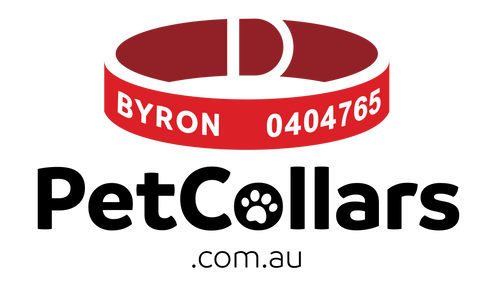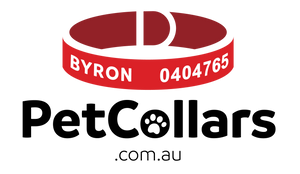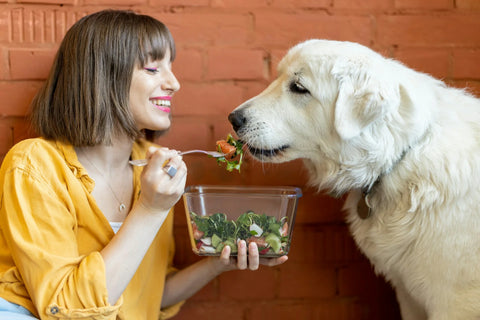
Best Meat for Dogs: Dog Feeding Guide
When it comes to feeding your furry friend, choosing the best meat for dogs is crucial not just for their health, but also for their overall well-being and appearance. A study conducted by Purina over 14 years demonstrated that maintaining an optimal body condition throughout a dog's life could extend their lifespan by up to 15%.
This finding underscores the profound impact that diet, particularly high-quality meat, can have on your dog. Incorporating the best meat for dogs into their diet is more than a mere nutritional decision; it's a commitment to enhancing their quality of life and enjoyment.
By focusing on nutrient-rich canine diet food, you provide essential proteins that support muscle development, immune function, and energy levels and unwanted behaviour, all of which contribute to a healthier, more vibrant pet. Beyond just longevity, a proper diet with the best meat for dogs ensures a lustrous coat, robust health, and the vitality needed for your dog to thrive in their daily activities.
The Importance of Diet in a Dog's Life
Diet forms the cornerstone of your dog's health. What you feed your dog not only fuels their daily activities but also plays a significant role in their long-term health and vitality. Just as proper nutrition is critical for human health, ensuring your dog receives the best meat for dogs and other high-quality foods is crucial for their optimal development and wellness.
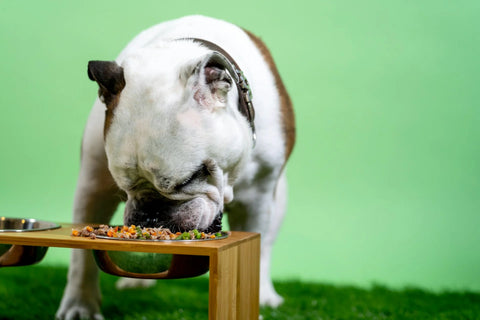
Benefits of a High-Quality Diet
- Extended Lifespan: Dogs fed with lean, high-quality meat live longer, showcasing the direct impact of diet on canine longevity.
- Improved Health Outcomes: A diet rich in the best meat for dogs reduces the risk of chronic diseases such as osteoarthritis, providing them with a life free from pain and discomfort.
- Better Weight Management: High-quality proteins help maintain an ideal body weight, preventing obesity-related issues and supporting overall metabolic health.
- Enhanced Fur Quality: Diets filled with essential nutrients lead to a healthier, shinier coat often seen on breeds such as Australian Shepherds or Border Collies, reflecting the internal health of your dog externally.
- Overall Vitality: Proper pet feeding with nutrient-dense foods and treats, like the best meat for dogs, enhances your pet’s energy levels and life quality, allowing them to engage more actively in daily activities.
Incorporating premium meats into your dog's diet, alongside avoiding harmful foods such as grapes, chocolate, and xylitol (often found in gum and candy), ensures they receive the essential nutrients needed without exposure to toxic substances. Understanding and implementing these dietary principles can transform your approach to canine nutrition, leading to a happier, healthier dog.
Best Meat for Dogs
Choosing the right meat for your dog can significantly affect their health. Here's what you need to know about selecting the best meat for dogs:
Chicken
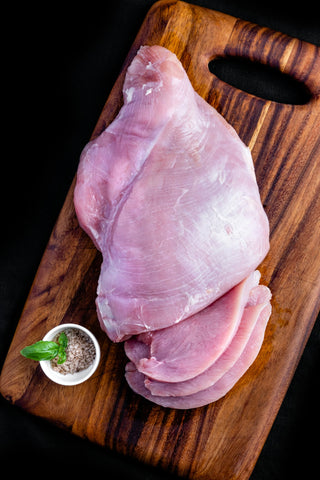
Chicken is not only a fantastic source of protein but also rich in essential vitamins like B3 (niacin) and B6, which are crucial for your dog's metabolic energy and maintaining healthy blood cells. It is especially beneficial for your dog's skin and bones, helping to promote a lustrous coat and strong skeletal structure.
Beef
Beef is an excellent choice for your dog's diet as it is rich in iron and high-quality protein. Iron is vital for transporting oxygen in the blood, while protein is essential for muscle growth and repair. Regular consumption of beef can help maintain high energy levels and robust muscular health in your dog.
Fish
Fish, particularly oily types like salmon and mackerel, are great sources of omega-3 fatty acids. These essential nutrients are ideal for maintaining a healthy skin and coat, reducing inflammation, and supporting your dog’s cognitive and heart health. Including fish in your dog's diet can contribute to overall wellness and disease prevention.
Lamb
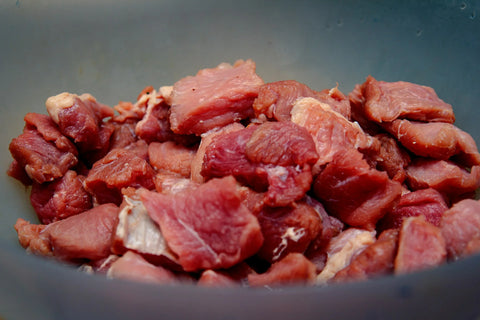
Lamb is a highly palatable meat that's packed with vitamin B12, omega fatty acids, selenium, and zinc. These nutrients support energy levels and cellular health, making lamb a superb choice for dogs requiring a more calorie-dense diet or those that are active and energetic.
Turkey
Turkey is an excellent protein source for dogs with sensitive stomachs due to its easy digestibility. It's also lower in fat compared to other meats, making it a good option for weight management. Turkey helps maintain lean muscle mass and is rich in nutrients important for overall health, including phosphorus and riboflavin.
Best Meat for Dogs vs Low-Quality Meat: Repercussions
Feeding your dog low-quality meat can have significant negative effects on their health. Meat that is not sourced or processed appropriately may contain harmful bacteria, less nutritional content, or additives that are bad for your dog. Issues can range from poor coat quality and lethargy to more severe chronic health conditions like kidney disease or digestive problems.
Therefore, investing in high-quality meat for your dog is crucial for their long-term health and well-being. Always ensure that the meat you choose is appropriate for canine consumption and free from harmful preservatives or additives often found in lower quality products.
20 Foods Harmful to Dogs

While focusing on the best meat for dogs, it's crucial to recognize which foods to avoid. Here are 20 foods that can be harmful and should not be included in your dog’s diet:
- Chocolate: Contains theobromine and caffeine, which can be toxic to dogs even in small amounts, causing heart problems, seizures, and in severe cases, death.
- Xylitol: Found in gum and candy, this sweetener can cause insulin release in many species, which might lead to liver failure and hypoglycemia.
- Grapes: Highly toxic to dogs, grapes can cause sudden kidney failure and death. It's important to note, especially in regions like Australia, that can dogs eat grapes Australia queries often come up, and the answer is decidedly no.
- Raisins: Similar to grapes, raisins can cause kidney failure in dogs, even in small amounts.
- Macadamia nuts: Known to cause weakness, depression, vomiting, tremors, and hyperthermia in dogs.
- Avocado: Contains persin, a fungicidal toxin, which can cause health issues in dogs like vomiting and diarrhea.
- Onions and Garlic: These can cause gastrointestinal irritation and could lead to red blood cell damage and anemia.
- Cooked Bones: When cooked, bones can splinter and cause internal damage or obstruct the digestive tract.
- Caffeine Products: Products containing caffeine, like coffee or tea, can be dangerous, leading to restlessness, rapid breathing, heart palpitations, and muscle tremors.
- Alcohol: Even small amounts of alcohol, whether found in beverages or foods, can be dangerous, causing vomiting, diarrhea, coordination issues, breathing problems, coma, or even death.
- Corn Chips: High in salt and fats, they can cause obesity and related health issues and potentially lead to sodium ion poisoning.
- Coconut Rice: While coconut itself isn’t toxic to dogs, the high-fat content can cause stomach upset and pancreatitis. Plus, rice can lead to weight gain.
- Raw Mincemeat: May contain bacteria that can lead to food poisoning. Additionally, can dogs eat raw mincemeat is a common question, and the advice is generally to avoid it due to the risk of bacterial contamination.
- Raw Sausage: Can contain harmful bacteria and spices that are toxic to dogs.
- Devon: Can dogs eat Devon? This type of processed meat that may contain spices and preservatives is harmful to dogs.
- Mushrooms (in Australia): Certain types can be toxic, causing vomiting, seizures, and even death. Queries about can dogs eat mushrooms Australia should always be approached with caution as many varieties are unsafe.
- Lemon: The psoralens and essential oils in lemons can cause gastrointestinal symptoms like vomiting and diarrhea.
- Raw Beef Mince (if not from a trusted source): Can contain harmful bacteria that may lead to food poisoning. It's crucial to ensure whether is raw beef mince good for dogs only if it's sourced from reliable suppliers.
- Gingerbread: Typically contains nutmeg, which can cause seizures and central nervous system problems, and xylitol, which is toxic to dogs.
- Any Product with Mould or Spoiled Food: Can contain multiple toxins causing vomiting, diarrhea, and in severe cases, can lead to death.
Is Pet Feeding as Important as Human Nutrition?

Yes, pet feeding is as critical as human nutrition because pets have specific dietary needs that, when met, can prevent diseases and extend their lifespan. Just as humans require balanced nutrition to maintain health, so do dogs need tailored diets— especially formulated to support their health, growth, and energy levels for fun outings and experiences.
This comparison underlines the importance of a well-thought-out diet for maintaining the overall health and well-being of our canine companions, ensuring they not only survive but thrive under our care. Understanding what canine diet food should include, and importantly, what it should exclude, is essential for all pet owners.
Conclusion: Elevate Your Pet's Health with Quality Nutrition and Products

Choosing the best meat for dogs and being mindful of dangerous foods are pivotal steps toward ensuring your pet's health and happiness. By focusing on quality pet feeding practices, you can significantly enhance your dog's quality of life and longevity. Good nutrition is vital, but it’s equally important to consider all aspects of pet care, including their physical safety and comfort.
At PetCollars AU, we understand the comprehensive needs of pet owners who not only want to ensure their pets are well-fed but also safe and stylish. Our range of products, from durable, personalized dog collars to harnesses with name and phone number of your dog and more, ensures that every aspect of your pet's life is covered.